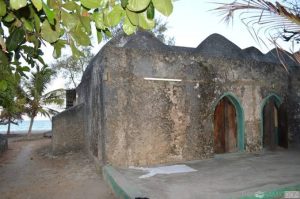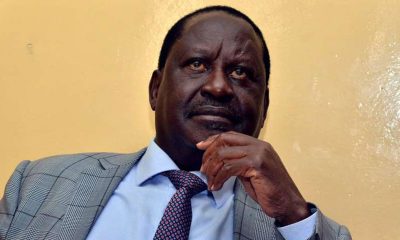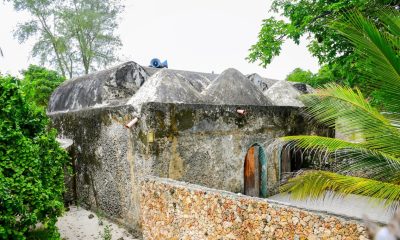Investigations
Senior Government Officials Implicated in Alleged Plot to Grab Sh1.4 Billion Kongo Mosque Land in Diani
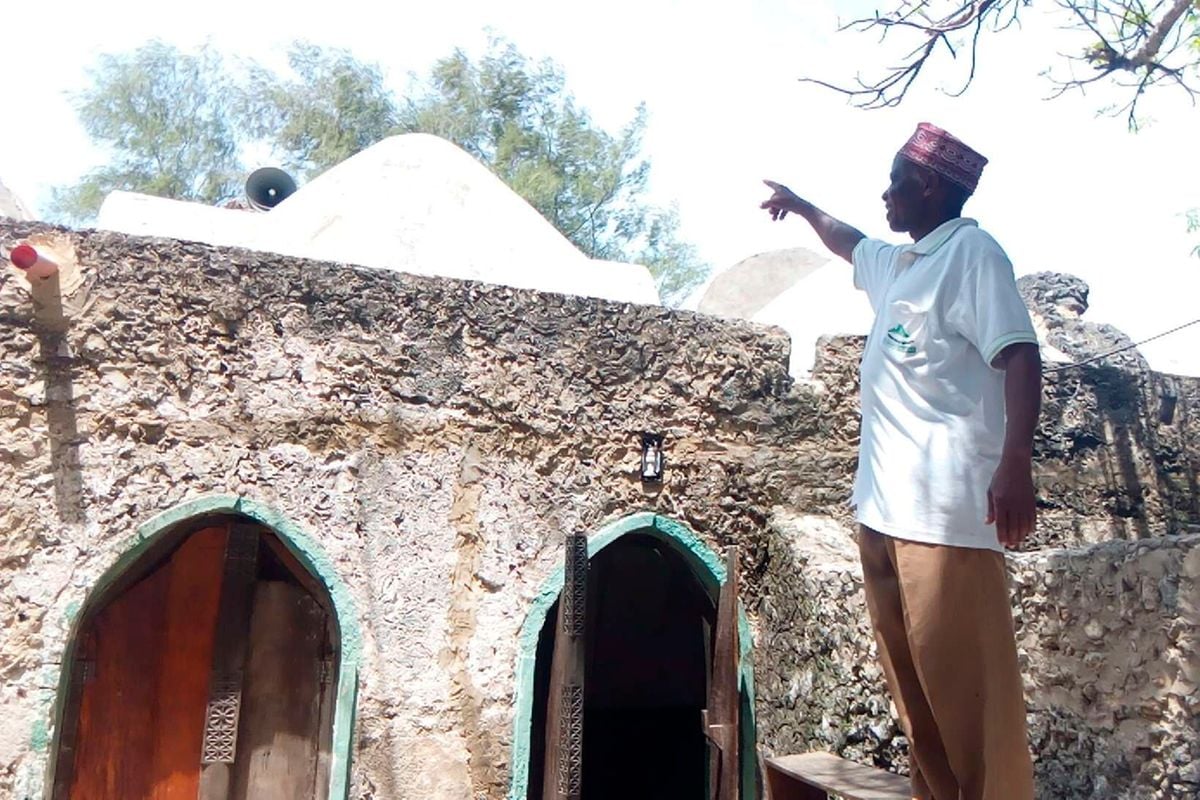
A historic 14th-century Kongo Mosque in Diani, Kwale County, valued at Sh1.4 billion, is at the center of a contentious land dispute, with allegations of a sophisticated scheme involving senior government officials to unlawfully seize the property.
A formal complaint lodged with the Ethics and Anti-Corruption Commission (EACC) by Senior Counsel Paul Mwangi, representing the Kwale Islamic Centre Self Help Group and the local Muslim community, accuses officials from the Ministry of Lands and the National Land Commission (NLC) of colluding with private individuals to grab the mosque’s land.
The Kongo Mosque, a coral-stone structure dating back to the 14th century, is one of East Africa’s oldest mosques and a gazetted national monument since 1983.
Located along the scenic shores of the Indian Ocean near the Kongo River, it holds profound religious, cultural, and historical significance for the local Muslim community and serves as a key tourist attraction.
The mosque, believed to have been built by Persian traders, features unique architectural elements and is surrounded by ancient baobab trees and oversized graves, including that of Sadiq Kongo, the mosque’s first Imam.
According to Mwangi’s letter to EACC Chief Executive Officer Abdi A. Mohamud, dated April 1, 2025, the controversy stems from a questionable Mombasa High Court judgment in 2005, which allegedly awarded ownership of the mosque land to Mohamed Hamisi Mwachumba and Ali Mwadarashi Mwagariche.
Mwangi argues that this ruling is fraudulent, asserting that the land has always been public property, protected under colonial-era laws and Kenya’s Antiquities and Monuments Act of 1983.
He highlights that the court file for the case has mysteriously gone missing, and the claimants’ evidence cannot be verified.
Further complicating the matter, Mwangi notes that the two individuals waited 19 years, until February 17, 2025, to secure a title deed, despite claiming ownership since 2005.
The title, registered as a 99-year lease from October 2023, contradicts earlier claims of freehold ownership linked to former President Daniel arap Moi.
Mwangi alleges that the 2005 High Court case cited—Mombasa High Court Civil Case No. 73 of 2005—did not involve Mwachumba or Mwagariche, but rather Hassan Mohammed Hussein and Yussuf Kulmiye Ulusow, raising questions about the legitimacy of their claim.
Historical records cited in the complaint trace the mosque’s protected status back to 1927, when it was listed under the Ancient Monuments Preservation Ordinance.
In 1983, Gazette Notice No. 440 officially designated the Kongo Mosque and its surrounding land up to the high-water mark as a protected heritage site.
Mwangi argues that any allocation of the land, including a reported attempt in 1986 involving senior state officers and Moi, was illegal.
Moi is said to have surrendered the title in 2009 after leaving office, and the land was formally handed over to the Muslim community in 2012 by then-Prime Minister Raila Odinga, with the Permanent Secretary of the Treasury as trustee.
The mosque’s custodians and local leaders have expressed outrage over the planned sale, which they learned of in 2023 when the property was listed for Sh1.445 billion.
Omar Kisinyo, an Imam at the mosque, emphasized its importance as a place of worship and a cultural landmark, warning that its sale to private investors could lead to developments that violate Islamic traditions.
The mosque’s proximity to a public beach, frequented by locals and tourists, has also sparked concerns among boat operators and beachgoers who fear losing access to the area.
Kwale Governor Fatuma Achani has vowed to protect the mosque land, stating that the EACC, Directorate of Criminal Investigations (DCI), and NLC are investigating the matter.
The Muslim community has also taken legal action to revert ownership to the local Islamic community, with two lobbies filing cases to block the sale.
“This is a classic Kenyan land grab, bringing together senior officers in the Ministry of Lands, the Mombasa High Court, and the National Land Commission in a joint criminal enterprise,” Mwangi stated in his letter, which was also shared with the Presiding Judge of the Mombasa High Court to highlight alleged fraud in the court’s registry.
Kenya Insights allows guest blogging, if you want to be published on Kenya’s most authoritative and accurate blog, have an expose, news TIPS, story angles, human interest stories, drop us an email on [email protected] or via Telegram
-
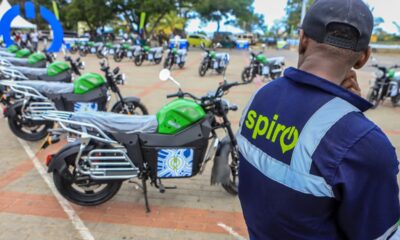
 Business1 week ago
Business1 week ago‘They’re Criminals,’ Popular Radio Presenter Rapcha The Sayantist Accuses Electric Bike Firm Spiro of Fraudulent Practices
-

 Business1 week ago
Business1 week agoIt’s a Carbon Trading Firm: What Kenyans Need to Know About Spiro’s Business Model Amid Damning Allegations of Predatory Lending
-

 Business6 days ago
Business6 days agoManager Flees Safaricom-Linked Sacco As Fears Of Investors Losing Savings Becomes Imminent
-

 Investigations1 week ago
Investigations1 week agoDisgraced Kuscco Boss Arnold Munene Moves To Gag Media After Expose Linking Him To Alleged Sh1.7 Billion Fraud
-
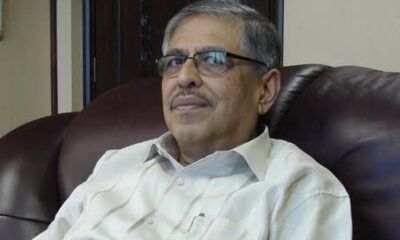
 News1 week ago
News1 week agoWoman Accused in High Defamation Blames AI As Case Exposes How Mombasa Billionaire Mohamed Jaffer Allegedly Sponsored Smear Campaign Linking Joho’s Family To Drug Trafficking
-
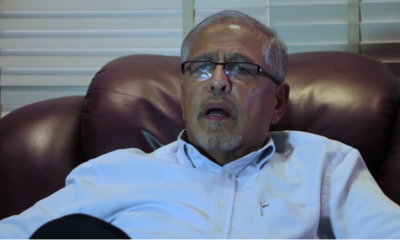
 News2 weeks ago
News2 weeks agoTemporary Reprieve As Mohamed Jaffer Wins Mombasa Land Compensation Despite Losing LPG Monopoly and Bitter Fallout With Johos
-

 Investigations2 weeks ago
Investigations2 weeks agoFrom Daily Bribes to Billions Frozen: The Jambopay Empire Crumbles as CEO Danson Muchemi’s Scandal-Plagued Past Catches Up
-
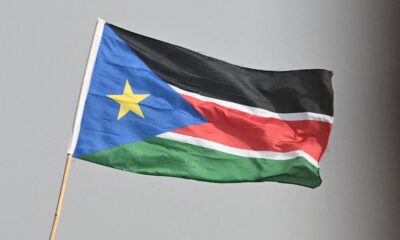
 Africa1 week ago
Africa1 week agoDisgraced Oil Trader Idris Taha Sneaks Into Juba as Empire Crumbles

